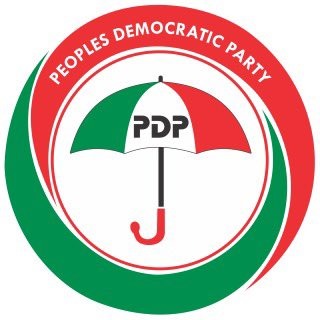The Peoples Democratic Party (PDP), Nigeria’s primary opposition force, finds itself entangled in a web of internal conflicts that threaten its very existence. The 2023 election cycle ignited a series of power struggles and divisions within the party, stemming from a contentious presidential primary and subsequent decisions regarding leadership positions. The initial rift emerged after Atiku Abubakar’s victory over Nyesom Wike in the presidential primary, leaving Wike’s supporters feeling marginalized. The situation deteriorated further with Atiku’s selection of Ifeanyi Okowa as his running mate, a decision that disregarded recommendations from influential party members who had backed Wike. This led to the formation of the G5 faction, led by Wike, which demanded the resignation of the then National Chairman, Iyorchia Ayu, as a prerequisite for supporting Atiku’s campaign. The failure to reconcile these factions significantly contributed to the PDP’s loss in the presidential election, setting the stage for a deeper and more complex crisis.
The internal strife has recently escalated, with new dimensions emerging and old wounds festering. The ongoing conflict between Wike and his successor in Rivers State, Sim Fubara, has further complicated the situation, creating additional layers of division within the party. The dispute over the national chairmanship continues, with competing factions supporting different candidates for the role. The North Central Zone’s persistent demand for Ayu’s replacement further exacerbates the existing tensions. Simultaneously, the refusal of the acting National Working Committee (NWC) to convene the National Executive Council (NEC) meeting has hindered progress towards resolving these critical issues. The delayed NEC meetings exemplify the paralysis gripping the party, preventing meaningful dialogue and exacerbating the sense of distrust among members.
The struggle for control within the PDP extends beyond the national chairmanship, impacting other key leadership positions. The ongoing dispute over the National Secretary position, with conflicting court rulings and competing claims to the role, illustrates the depth of the crisis. The physical altercation between supporters of rival candidates at the PDP headquarters underscores the volatile nature of these internal power struggles. These conflicts, driven by personal ambitions and a disregard for the party’s constitution, have created a chaotic environment where party rules are routinely ignored, and internal processes are manipulated for personal gain.
Political analysts warn that the ongoing crisis within the PDP poses a serious threat to the party’s future. The persistent infighting damages the party’s credibility, erodes public trust, and diminishes its electoral prospects. The divisions within the party create a perception of disorganization and instability, making it difficult for the PDP to present a united front and effectively challenge the ruling party. The loss of key elections and the defection of members to the ruling APC further weaken the PDP’s position, confirming the detrimental impact of the internal strife.
While some within the PDP attempt to downplay the severity of the crisis, characterizing it as a “family affair,” the reality is far more concerning. The failure of reconciliation efforts and the ongoing disregard for party rules suggest a deeper malaise within the party. The inability to address fundamental issues and enforce internal discipline raises serious doubts about the PDP’s capacity to reform and regain its standing as a viable political force. The party’s national publicity secretary acknowledges the internal challenges but expresses confidence in the party’s ability to resolve them. However, the lack of concrete action and the continued escalation of conflicts suggest a disconnect between rhetoric and reality.
The future of the PDP hinges on its ability to address the root causes of the current crisis. A return to the principles of party supremacy, adherence to the party’s constitution, and a commitment to internal democracy are essential for rebuilding trust and unity. Strengthening internal mechanisms for conflict resolution and enforcing accountability for those who violate party rules are equally crucial. If the PDP fails to take decisive action, the ongoing crisis could lead to further fragmentation, jeopardizing its ability to compete effectively in future elections and potentially leading to its demise as a major political force in Nigeria. The upcoming national convention and presidential primary represent critical junctures for the party. If the PDP cannot navigate these events successfully, resolving internal disputes and presenting a united front, its future prospects appear increasingly bleak. The party risks being consumed by its internal conflicts, forfeiting its role as a credible opposition and jeopardizing the democratic process in Nigeria.














